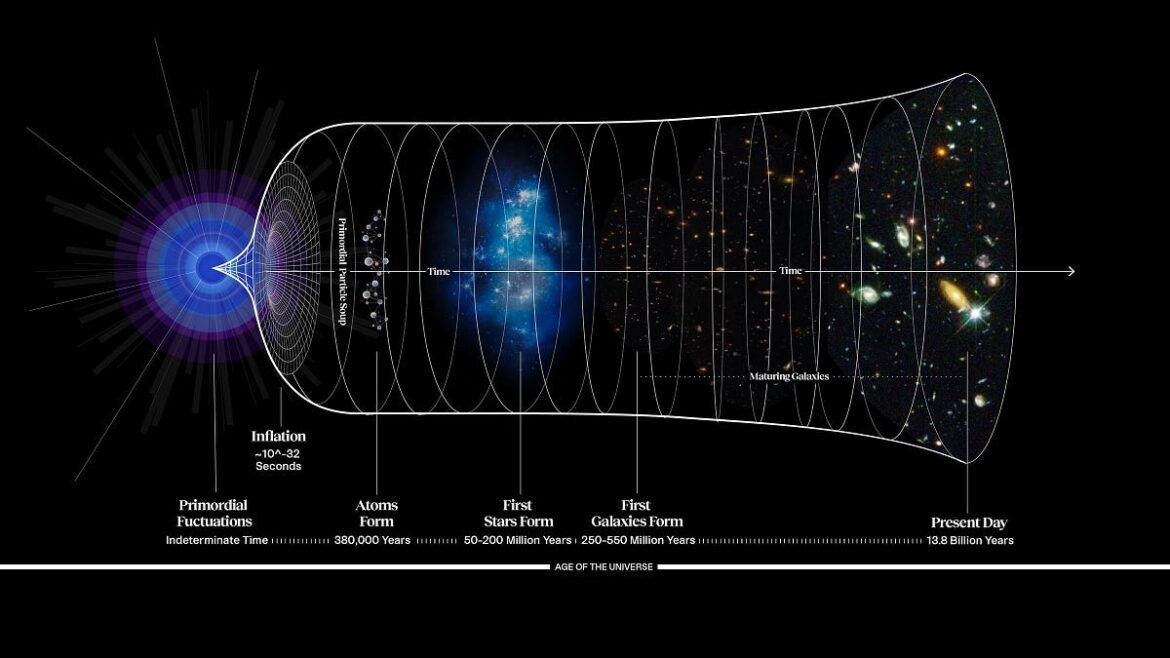The Universe didn’t begin with a bang, but with an inflationary “whoosh” that came before. Here are the biggest questions that still remain.
Imagine what it must have been like, as it was for so long throughout human history and prehistory, to look up at the wonders of the night sky in ignorance: not knowing what you were seeing or where any of it came from. All you could behold with your eyes were those glittering points of light in the sky: the Moon, the planets, the stars, a few deep-sky objects (or nebulae), and the tapestry of the Milky Way, with no way of knowing what they were made of, where they came from, or what any of it meant.
Today, the story is very different. Nearly all of the night sky objects we can see with our naked eye are objects present within the Milky Way galaxy. A few of those deep-sky objects turn out to be galaxies, with trillions of more galaxies — including small, faint, and ultra-distant ones — observable with superior tools. These galaxies all expand away from one another, with more distant objects expanding at greater speeds than nearer ones.
The expanding Universe swiftly led to the idea of the Big Bang, which was then confirmed and validated. The Big Bang was then modified to include an even earlier stage known as cosmic inflation, which preceded and set up the Big Bang’s initial conditions. That’s the current status of our understanding of the beginning as of today, in early 2024. Here are the biggest questions, both answered and unanswered, that we still have about the earliest phases of our Universe.
The inflationary hot Big Bang
Most of us have heard of the Big Bang: the notion that the Universe began from a very hot, very dense, and very uniform state, and then expanded, cooled, and gravitated, eventually giving rise to:
- protons and neutrons,
- atomic nuclei,
- neutral atoms,
- stars,
- galaxies,

